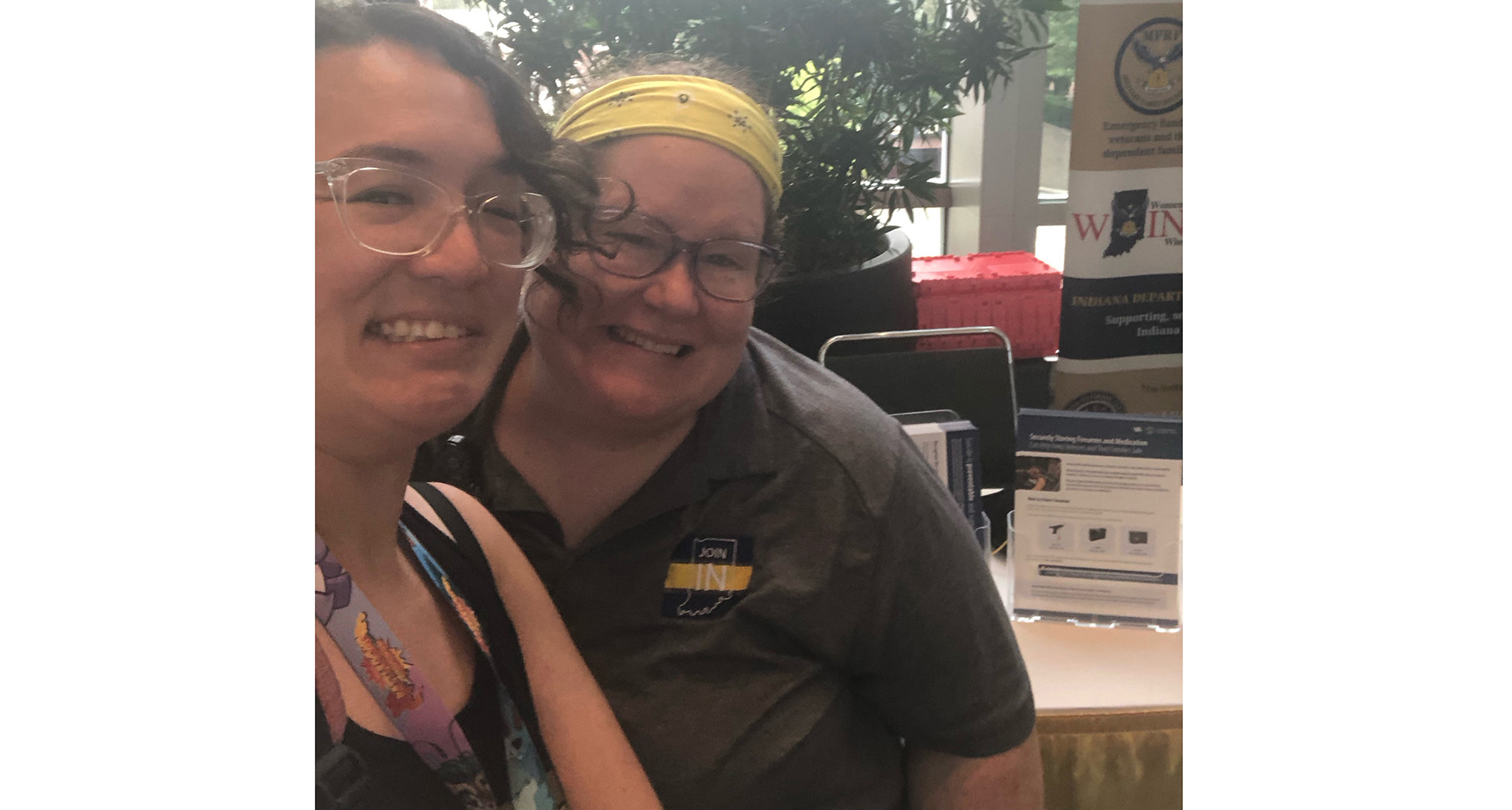
Indiana VA agency makes connections to fight veteran suicide at international convention.
In its effort to reach as many members of the military-connected community as possible, the Indiana Department of Veterans Affairs (IDVA) ventured into a new universe in early August – right in the middle of downtown Indianapolis.
Gen Con is the oldest and largest gaming convention in North America. This year, the convention hit an all-time attendance high of more than 71,000; all tickets were sold prior to opening. By “gaming” is meant all kinds of gaming: tabletop, video, virtual, role-playing, re-enacting, miniatures and more, as well as seminars, a film festival, a writers symposium, a massive exhibit hall, a cosplay parade and even more than that. Attendees, of all ages and backgrounds, come to Indianapolis from around the world and across Indiana.
Carlye Gibson is veteran suicide prevention director at the Indiana Department of Health, which shared the table in “Community Row” – free tables Gen Con provides to area nonprofits and projects – with IDVA. She said they pursued the table as part of the Indiana Governor’s Challenge, which seeks to prevent suicide in the military-connected community. The American Legion Department of Indiana is also part of the state challenge. Only half of veterans eligible for some type of federal benefits are receiving them: “To find the ‘other half’ we need to engage this community where they are, at events like this,” she stated.
Gibson plays board games with friends and other groups and is part of a weekly “Magic: The Gathering” card-game group. Also in attendance at the table was Joseph DeVito, IDVA outreach director, Coast Guard veteran and Legion member, who “had an affair with ‘Risk’ many years ago.” Their objective was to pass out “swag,” interact with the military-connected community who passed by and ascertain that they were aware of their benefits. Those members were referred to scan a one-time QR code and send a text message. Forty-eight hours later, the agency sent follow-up questions. The first step was the attendee’s state; they then received either more information on Indiana’s benefits or a link to their state or territory’s benefits site.
Over the four days of the convention, the QR code registered 196 scans from 28 different states, as far away as Alaska. Indiana provided 88, whose attendees have been added to the agency’s database for future updates and information. Gibson’s favorite moment was “having a veteran ask if they could hug me. It was just one of the moments of right place, right time, and that individual had needed someone to listen and I was available.”
DeVito’s was being told by three different attendees, “Thank you for being here – I have not seen veterans represented before and it’s great.”
IDVA wants to increase their participation at Gen Con in 2025, whether by being part of Trade Day, the networking/education sessions the day before the convention begins, or by starting an open-gaming room for veterans and servicemembers.
Army veteran John Belden has been attending Gen Con since 1992 and said of the IDVA table: “I was just glad to see it there, even though I personally didn’t need anything.” He continued, “My first ‘Dungeons & Dragons’ game was as a soldier in the barracks. Looking back, it was a good way to pass the time and connect with fellow servicemembers from different backgrounds and other parts of the United States, while sharing an interest in fantasy and sci-fi.” He has met “a lot” of fellow veterans during his three decades of attendance.
Gibson believes one reason servicemembers and veterans are drawn to gaming is connection in all its forms, which can be pivotal in transition and suicide prevention: “Many of these games can be played in person, but some are online or virtual environments that are able to be played from any location. I think some servicemembers gamed when they were in their teens and then found similar individuals in the service, or started gaming while in the service as a form of social connection.”
But at the same time, she thinks an additional lure is anonymity: “When you are gaming, you don’t have to have the veteran or servicemember hat on. You are wearing the gaming hat.”
- Suicide Prevention

